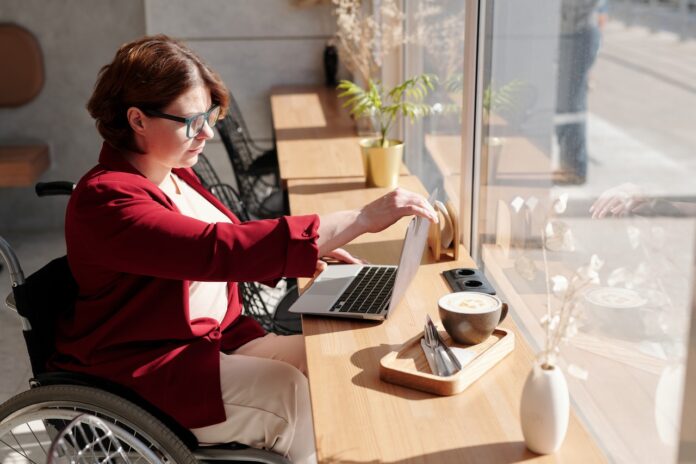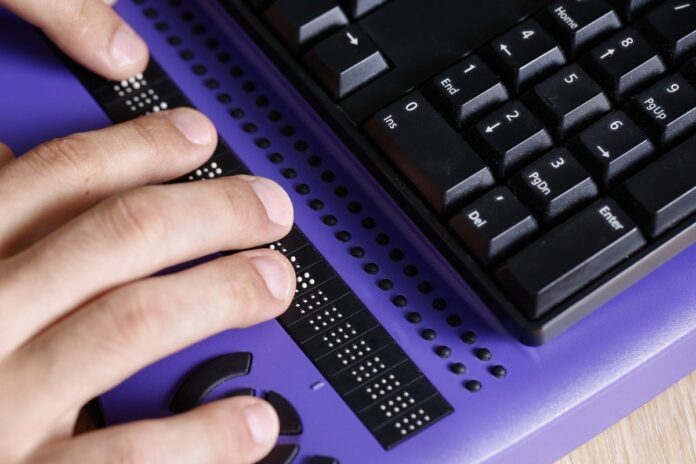
Approximately sixty-one million adults in the US live with a disability, and 6.8 percent have a hard time doing errands by themselves, according to the CDC. Living with a disability is challenging, and the most stressful part is being dependent on someone else for your needs. Depending on others to support you emotionally, financially and help you wash or cook makes life more difficult. But as hard as it may seem, living an independent life while dealing with a disability is possible. To achieve this goal, you need to nurture healthy habits of the mind and gratitude. Also, take advantage of assistive technologies, as they provide numerous opportunities for you to become independent. Read on to learn how to be independent when living with a disability.
Follow your interests

Whether you’re living with limited mobility or hearing impairment, a disability shouldn’t stop you from pursuing what you desire most. With this in mind, dedicate time and effort to follow your interests. Take part in activities you like, like dancing, singing, painting, photography, or sculpting. It’s also wise to attend meet-ups with others who have similar interests and are living with disabilities. That way, it will be easy to share your likes and dislikes without fear of being judged. Your peers will also teach you different ways to explore your passions and follow them without difficulty. Remember, there will be many obstacles on your way, but you can be sure of the best outcomes if you have a positive attitude.
Face your fears

Everyone, even those living without a disability, have fears. However, when you’re living with a disability, you’re more likely to feel anxious about everything. It’s worth noting that high anxiety levels can limit your potential to lead an independent life. For this reason, you must overcome your fears. There are several tactics to cope with fear, including psychotherapy, medication, and alternative therapies. Experts also recommend talking to close relatives and friends about fears that limit you from living independently. Ensure that the people you choose to open up to can instill positive attitudes in you. The last thing you want is to talk to someone who will discourage you from being independent.
Learn essential life skills

The key to promoting independence when living with a disability isn’t about making one significant change. Instead, it’s a matter of making small changes that seem bigger when combined. Therefore, start developing skills linked to low-risk activities, such as washing, cooking, and mopping. Once you’re comfortable and confident to handle these skills independently, consider improving social and life skills. These include going shopping, engaging in community activities, and building relationships. Learning these daily life skills helps you build the confidence you need to do things by yourself. It also prepares you to develop employment skills like money management and how to use different technologies.
Note that there’s no perfect timing to develop life skills because everyone has a unique pace of learning. Your progress will depend a lot on your abilities and how fast you wish to learn. Plus, there might be a few challenges that will interfere with the growth process. To ensure obstacles don’t get in the way of enjoying your independence, create a daily life skill learning routine. This trick helps you get into the habit of learning every day, regardless of the challenges you’ll face.
Establish a strong support network

Building a support system you can count on for growth is vital if you want to experience independence despite living with a disability. Failure to find the right support network means you’ll lack the emotional nurturing you need to function as an independent person. Start by talking to your family and friends about your independence goals. This step will help you get everyone you trust involved in supporting you to become independent. While the support of loved ones might seem enough, it’s advisable to expand your support network. One way to do this is by joining a disability support group.
Support groups create room for learning from other people’s experiences. You’ll also find valuable resources to learn more about disabilities and how you can live independently. For instance, let’s say you’re living with cerebral palsy. Attending group sessions designed for individuals with neurological disorders helps you understand different cerebral palsy types. Support organizations and groups like the Cerebral Palsy Family Network can be helpful too. You’ll also learn how different types of cerebral palsy impact your independence and how you can cope. For example, spastic cerebral palsy causes the muscles to tighten, making it difficult for individuals to grasp or release objects in their hands. To manage spastic movements and promote independence, people with this type of cerebral palsy opt for therapies and surgical procedures. Additionally, they need wheelchairs, canes, walkers, and other assistive equipment to enhance mobility, eating, and hygiene.
Leverage technology to enhance accessibility and skills

Thanks to advancements in technology, individuals living with disabilities can live independently without facing many challenges. Assistive technologies like alternative keyboards, digital assistants, and bionic technology aim to empower people with disabilities to live independently and improve their lifestyles. For example, alternative keyboards help individuals with motor disabilities or visual impairment improve their typing skills. On the other hand, digital assistants like Siri, Amazon Echo, and Alexa allow you to make commands using your voice. For instance, you can control the TV and lights by asking Siri or Alexa to do so. With these voice-controlled devices integrated into a home, a person with a disability can do things alone with ease. Other assistive technologies worth investing in are adaptive switches, video doorbells, hearing aids, and mobile assistive devices like screen readers, braille displays, and wearables.
Living with a disability can be difficult because it forces you to depend on others for your needs. However, a disability, whether it’s visual impairment, limited mobility, or neurological disorder, shouldn’t stop you from living independently. All you need to do is follow your interests, overcome fear, build a strong support system, and leverage assistive technology to enhance your skills. But most importantly, nurture the right attitude and look at life with a positive perspective to boost your independence.











